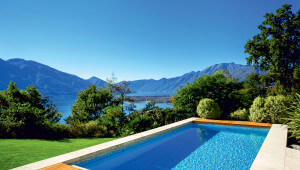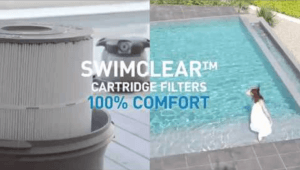Which pool filtration system should I choose?
A good filtration system is essential if you wish to enjoy clean, healthy, crystal-clear pool water. For the filter, you must choose a product suited to the volume of water to be treated. Several different technologies are available.
Filtration using sand, zeolite, glass: what is the difference?
The sand filter model is the most common and most economical. It is also one of the least efficient in terms of filtration because it only removes debris larger than 30 microns. However, you can improve this filtration size by adding flocculants. As its name indicates, sand is used to purify the water.
With this model, you can replace the sand with other filtration media which offer higher performance, such as polished glass (recycled) and zeolite (volcanic mineral powder). These products filter debris as small as 15 and 5 microns respectively. These materials trap fine particles more effectively. Even though polished glass is compatible with flocculants, this is not always the case with zeolite.
What are the other types of filters?
Alternative technologies are also available, such as cartridge filters and diatomaceous earth filters, which filter debris down to 20 and 3 microns respectively.
They have a different mode of operation and maintenance requirements. Cartridge filters do not use granulated materials (sand, glass or zeolite), but instead use a fabricated filtration medium of synthetic material such as polyester. No backwashing is required (as opposed to sand filters); instead a jet of water is used to clean the cartridge once it has been removed.
Diatomaceous earth filters consist of screens on which small algae are placed. These living micro-organisms act as a filtration medium by purifying the water. This solution is by far the most effective, hence its high cost.


